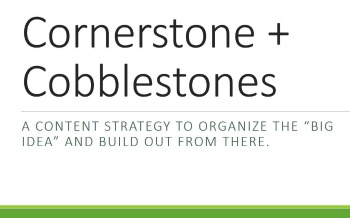There seems to be an evolving debate in the association world around the value of strategic planning. An August Associations Now article quite correctly pointed out that most strategic plans don’t work; but then the author went on to argue that strategic planning is not an essential business function. Scott Briscoe continued the discussion in a post on ASAE’s Acroynm blog, expressing surprise at the vehemence of the debate and saying that “I thought the idea of strategic planning having lost its vitality and usefulness in favor of a more nimble, open planning process was pretty well set.”
Here’s my opinion: Businesses that don’t plan end up operating in reactive mode. And if we’re going to plan, shouldn’t that process be strategic?
I suggest we dispense with the notion that strategic planning is no longer relevant, and focus instead on what makes for an effective process and what the outcomes should be. Businesses need to have short, medium, and long-range goals and develop strategies and tactics within and across divisions to achieve these. They also need to periodically evaluate their activities and initiatives against their goals and objectives and make adjustments as needed. Businesses also need to periodically assess whether how they view themselves correlates to how others view them–whether their employees, customers, investors, or other stakeholders.
Strategic planning fails when people think the plan is the outcome. It’s not; it’s an iterative tool to help your business stay focused and moving forward. What do you think?
Photo by a2gemma (Flickr).



